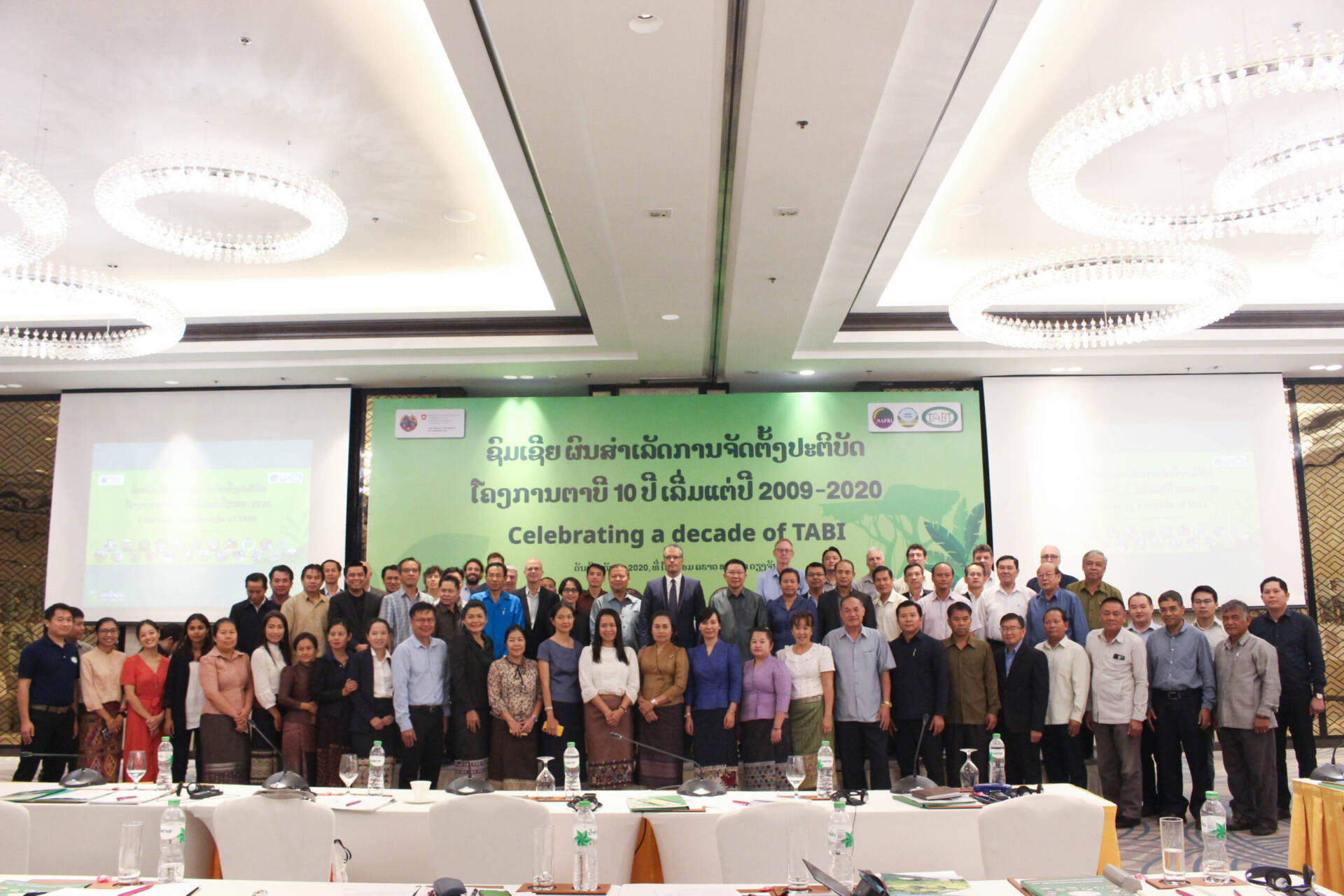
Agro-biodiversity project hailed a success after 10 years
The Ministry of Agriculture and Forestry on Wednesday celebrated a decade of The Agro-Biodiversity Initiative (TABI) at a meeting held in Vientiane to summarise the work of the past 10 years and discuss future plans.
Speaking at the meeting, Deputy Minister of Agriculture and Forestry Dr Linkham Douangsavanh said “For over 10 years TABI has worked to develop and restore biodiversity in order to sustain abundance and alleviate the poverty of ethnic groups in rural and upland areas of Laos.”
“I can confirm that the Agro-Biodiversity Initiative has been very important in supporting the goals of the government in the protection, restoration, administration and use of biodiversity and agriculture, enhancing the potential for sustainability in line with the policy on green development.”
“It has helped to improve the quality of life and ease poverty among people in rural and upland areas, especially in the provinces of Luang Prabang, Xieng Khuang, Huaphan and Phongsaly and nine other provinces taking part in this programme,” Dr Linkham said.
“TABI has also enabled officials and local people in focal areas to work together inline with the goals of the Three Builds directive by adding biodiversity and agriculture to the development plans drawn up by target provinces. It has enabled districts to take a stronger lead in administration and encourage agricultural biodiversity by empowering local people to share in more than 30 small schemes that were relevant to their needs and provided them with a profit.” he added.
Also attending the meeting were the Deputy Regional Director and Head of AFS Domain of the Swiss Agency for Development and Cooperation (SDC), Mr Christian Engler, programme staff, and officials.
TABI is a long-term programme of Laos’ Ministry of Agriculture and Forestry and the SDC.
It is implemented by the National Agriculture and Forestry Research Institute, NIRAS Natura, and the Centre of Development and Environment of the University of Bern.
It works with farming communities in the uplands and seeks to integrate sustainable natural resources use, forestry and marketing, while enhancing coherent participatory land use planning and good governance.
It brings together local experience with interventions at the community district, provincial and national levels and promotes knowledge-sharing for evidence-based decisionmaking.
The project was divided into three stages. The first stage fromMay 2009 to April 2012 was worth 4.9 million Swiss Francs and began to build occupational development activities relating to biodiversity in local focal points.
The second stage, with funding of more than US$8.4 million, took place from May 2012 to March 2017 and focused on improving activities in the field including creating systems and drawing up plans, and managing and administrating the use of agricultural land and forestry with the involvement of local people. The final stage was funded with US$5.1 million and ran from April 2017 to September 30, 2020.


